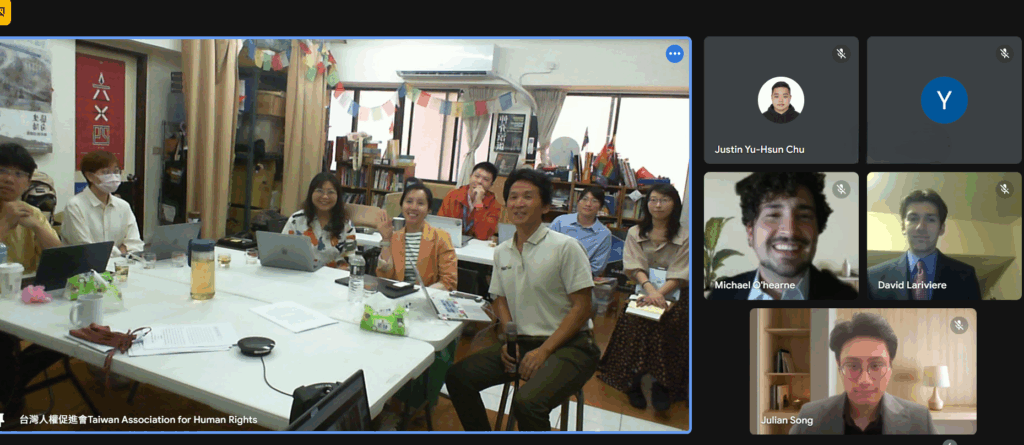Internet was born free. Internet ingeniously allowed all people to communicate with one another directly but without direct connection. Internet achieved that by forming a network of all routers bound by a global promise to pass all messages to their immediate neighbors according to routing tables, so that each message gets delivered to its destination after a sufficient number of “hops” between routers, where many more terminals obtain access to that network through nearby routers. It has been critical for this success that all routers ‘pass to neighbors’ for free and without any discrimination because they are carrying all other terminals’ messages. If routers charge money or impose other conditions for passage of messages (data packets), the transaction cost alone of resolving the charges and the passage conditions would have destroyed the Internet. Internet depends on this promise to ‘pass to neighbors’ for free and without discrimination, and we call that promise ‘network neutrality’. Now, if content or payment cannot be the requirement for passage, neither can it justify prioritization or throttling, either, and hence the more popularized version of network neutrality such as “no fast lanes”, “no paid prioritization”.
The socio-economic significance is great: It is thanks to the network neutrality rule that people speaking online can speak freely without worrying about the economic cost of delivering the messages to the potentially unlimited number of listeners. It is this feature of the Internet that strengthened democracy: by providing poor and powerless people with nearly free mass communication tools when governments and big advertisers influence broadcasting and newspapers.
Enter the ISPs. They provide access to the Internet for a fee by providing that neighborhood router through which the local customer can enter into the Internet, the world of the routers bound together by the promise of network neutrality. ISPs charge a fee because it does cost a little bit to maintain physical connection and also because ISP is itself not connected directly to all other terminals around the world and therefore must purchase connection from another ISP with better connection to the rest of the world (namely ‘transit’). Still, network neutrality is preserved: All fees are charged for capacity of the connection, not for the amount of data that pass through the connection, and therefore charged once only by the neighbors that provide the gateway into the world of the Internet. Once a person obtains Internet access at a certain capacity (or equivalently, speed) and maintains it, the person is never charged for no matter how much or which data he or she sends or receives through that connection.
We pay for ‘usage’ of water and electricity but data use in Internet is different: When it comes to data usage, everybody is both a provider and a customer so there is no person to charge only and no person to be charged only. We pay for data usage in wireless internet only because wireless carriers do own their proprietary network of cell towers, separately from the Internet, but even some ISPs are providing unlimited data plans because the importance of reaching outside the cell tower network is growing everyday. One such reason is because wired Internet can be made wireless easily through wifi, and the even capacity-based cost of wired internet is rapidly falling because more and more ISPs are making connections for free (namely ‘peering’).
Korea is different from the rest of the world. Korean government has required the previously peering ISPs to charge one another for traffic that they send to other ISPs (sending party network pays rule or SPNP). The ISPs that provide connection to killer contents or platforms end up paying a lot to other ISPs and therefore either prefer not to host them by charging higher connection fees or push down the SPNP fee to the content/platform providers. Even before the SPNP rule kicked in, the competition in Korea dominated by 3 big ISPs was lowest (measured in HHI) among the big (more than 20 million in population) developed countries. The end result is alarming: According to Telegeography, the weighted median cost of Internet connection of 1 Mbps in Seoul is 8 times Paris and 5 times New York. Korea Telecom, hosting Facebook’s domestic cache server, tried to push down the SPNP fee to Facebook, which responded by disabling the cache server, slowing down other ISPs’ customers’ access to Facebook contents.
SK Broadband, another big ISP, even demanded that Netflix, the increasingly popular contents served from California, pay for delivery to SK Broadband’s customers and formally requested the government to compel Netflix to negotiate with SK Broadband. Also, all 3 ISPs are arguing that they charge charge these foreign content providers what they call “network usage fee’, howling ”free-riding“.
Of course, this does not make sense. The foreign content either buys its way into the Internet at foreign locations unrelated to the 3 Korean ISPs or incurs expenses in pulling data all the way to Korea either through sub-sea cable or domestic cache servers .The last one is actually set up upon the invitation of the Korean ISPs who want to save the cost of obtaining sufficient transit with the higher tier, overseas ISP.
Consequences: Korean content providers could not handle the high ‘online real estate’ cost and moved overseas, bought into Amazon Cloud’s volume discount, or crumbled under the competition of foreign content providers because they cannot provide speed-intensive contents such as 4K video. Korean consumers are suffering as Korean content providers are downgrading their video services, and end up resorting to foreign content providers who are now in tumultuous fights with Korean telecoms. In the singular wonderland where the sender pays for cumulative traffic, these are expected.


Indeed, the Internet was born of the shackles of the physical world. It is important not impose too much limits that would otherwise hinder progress.